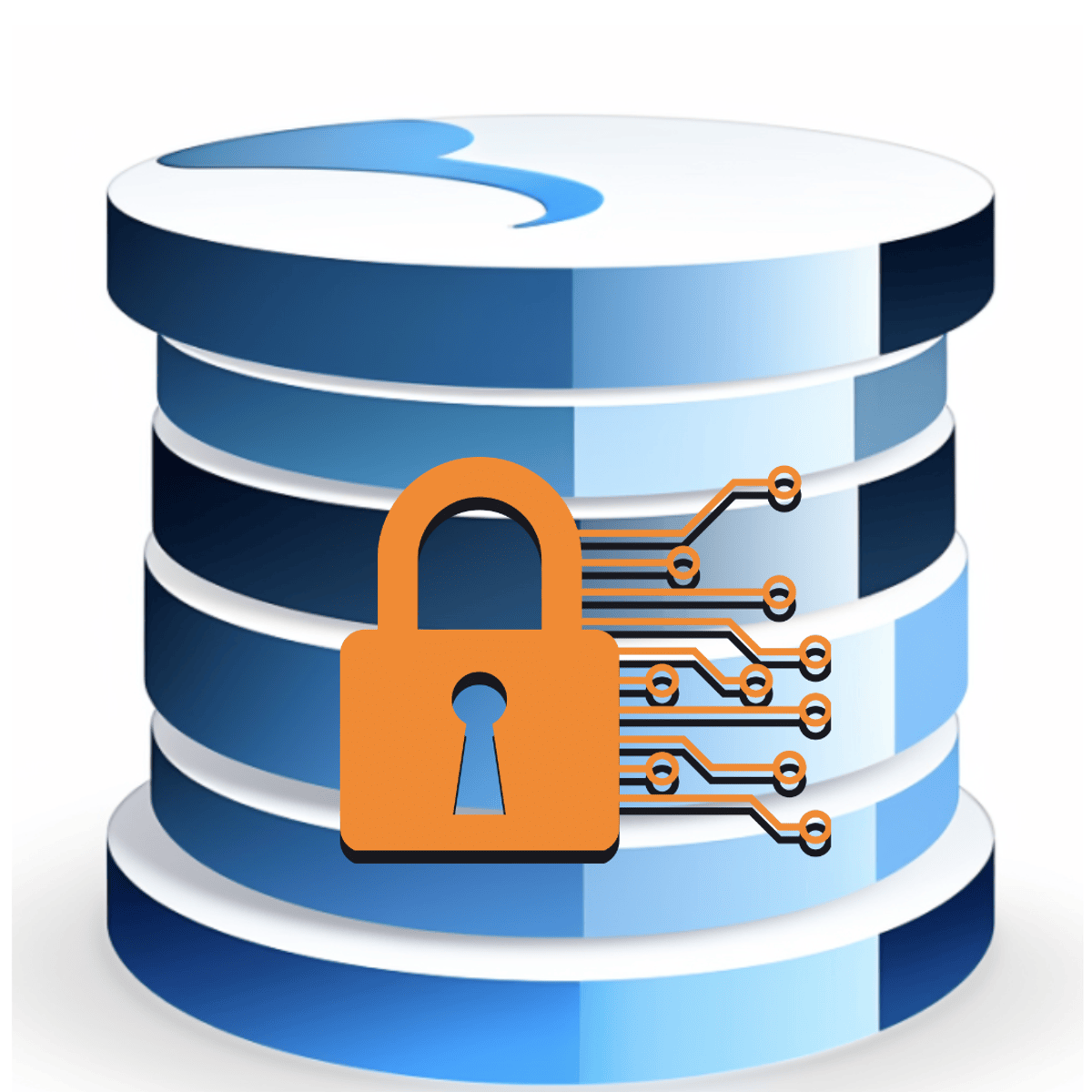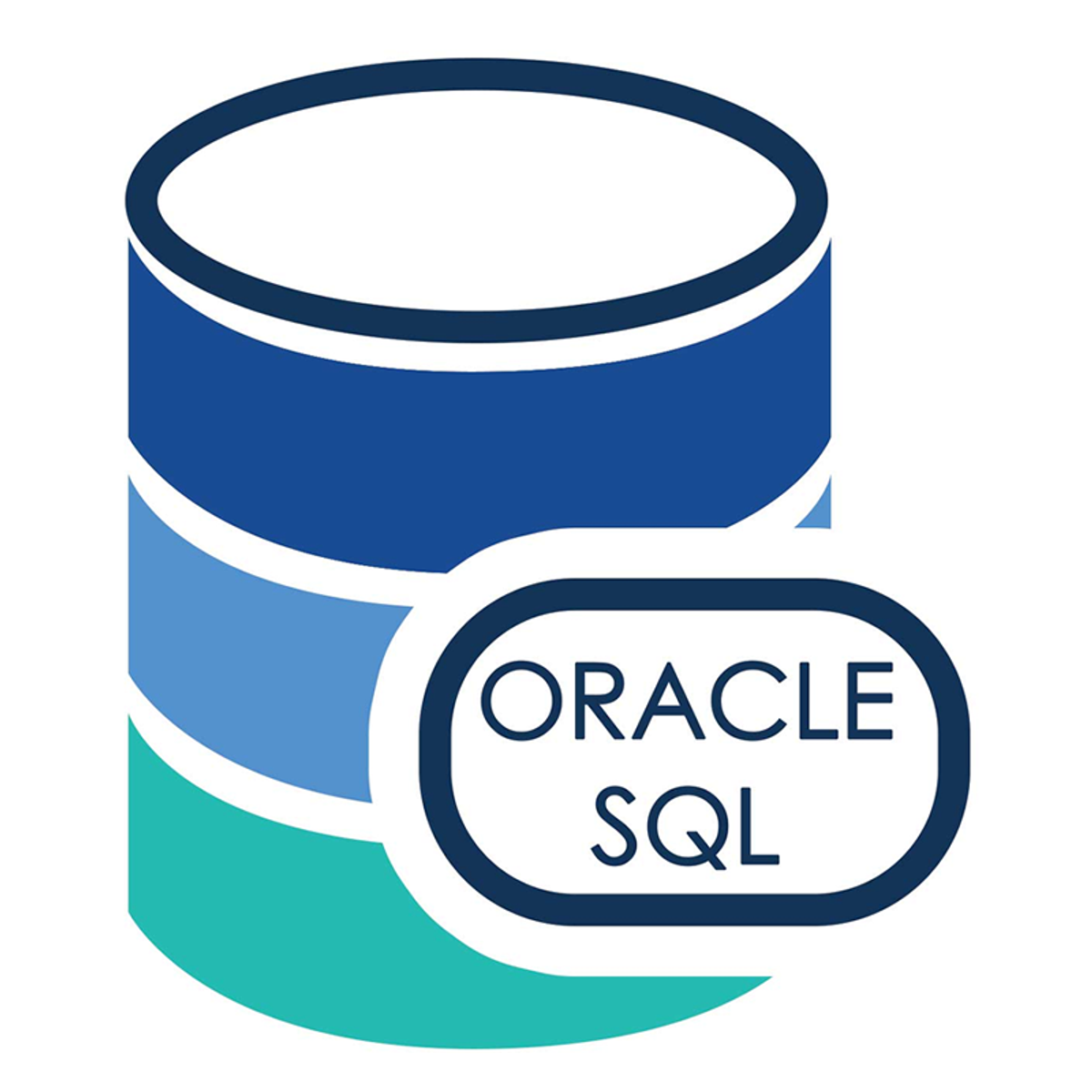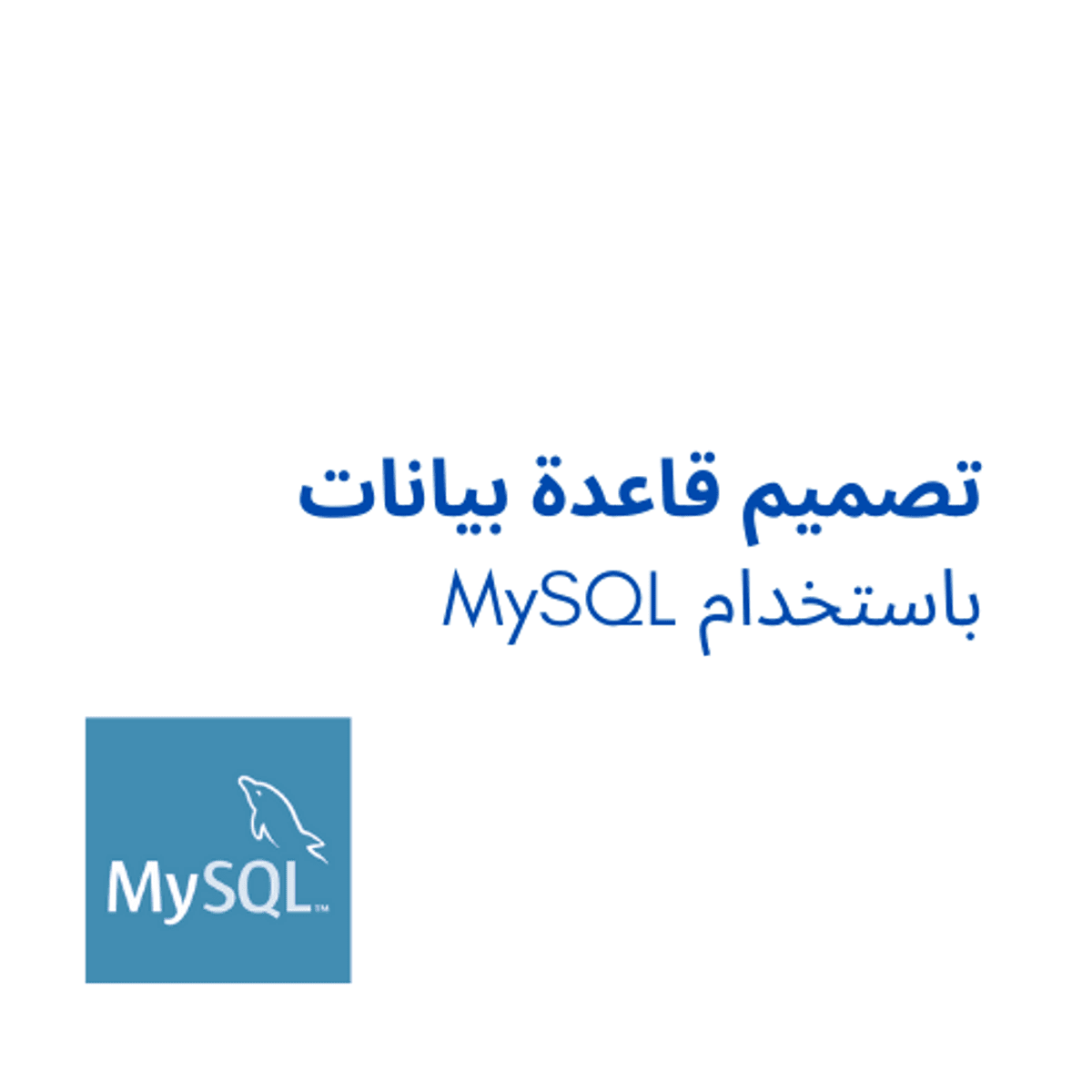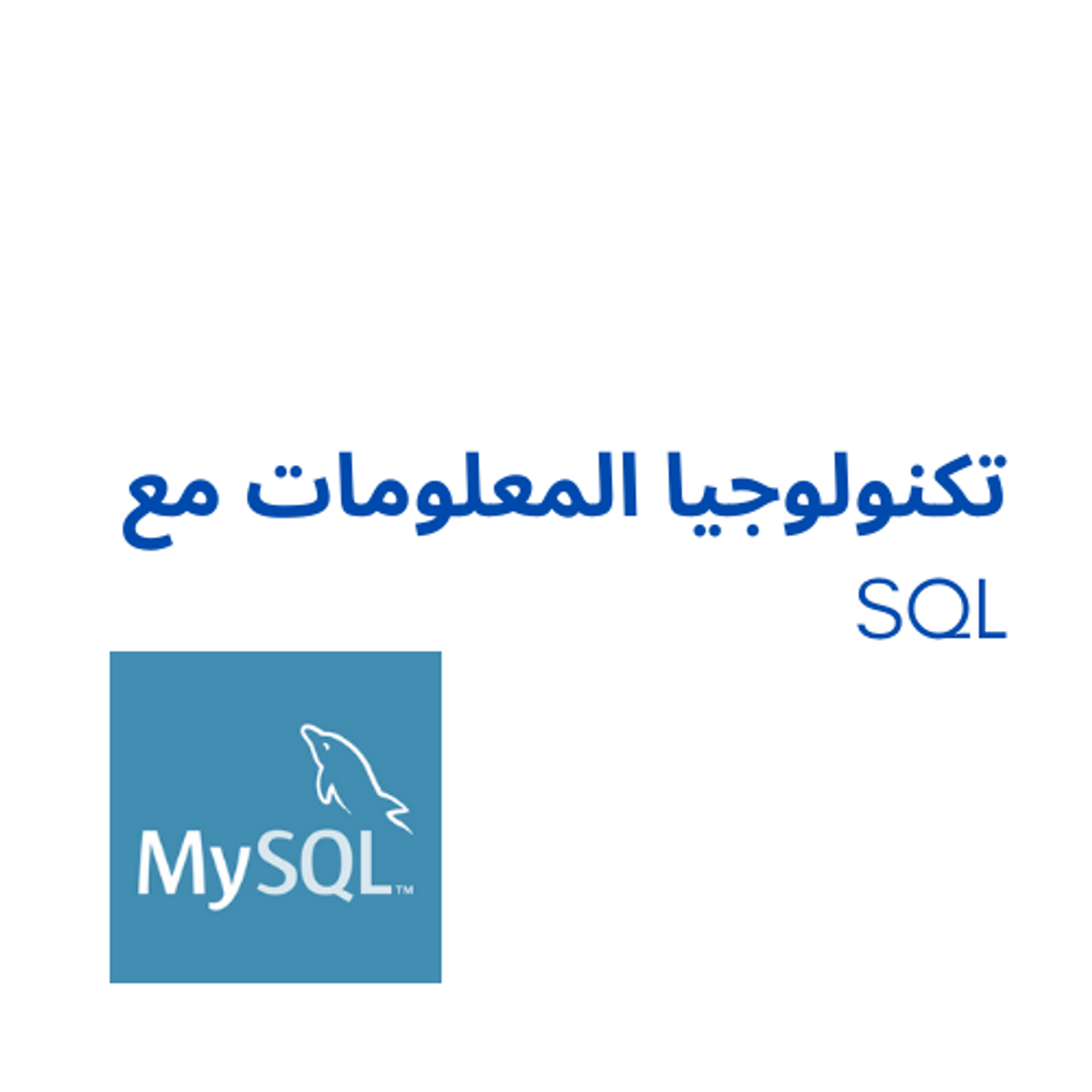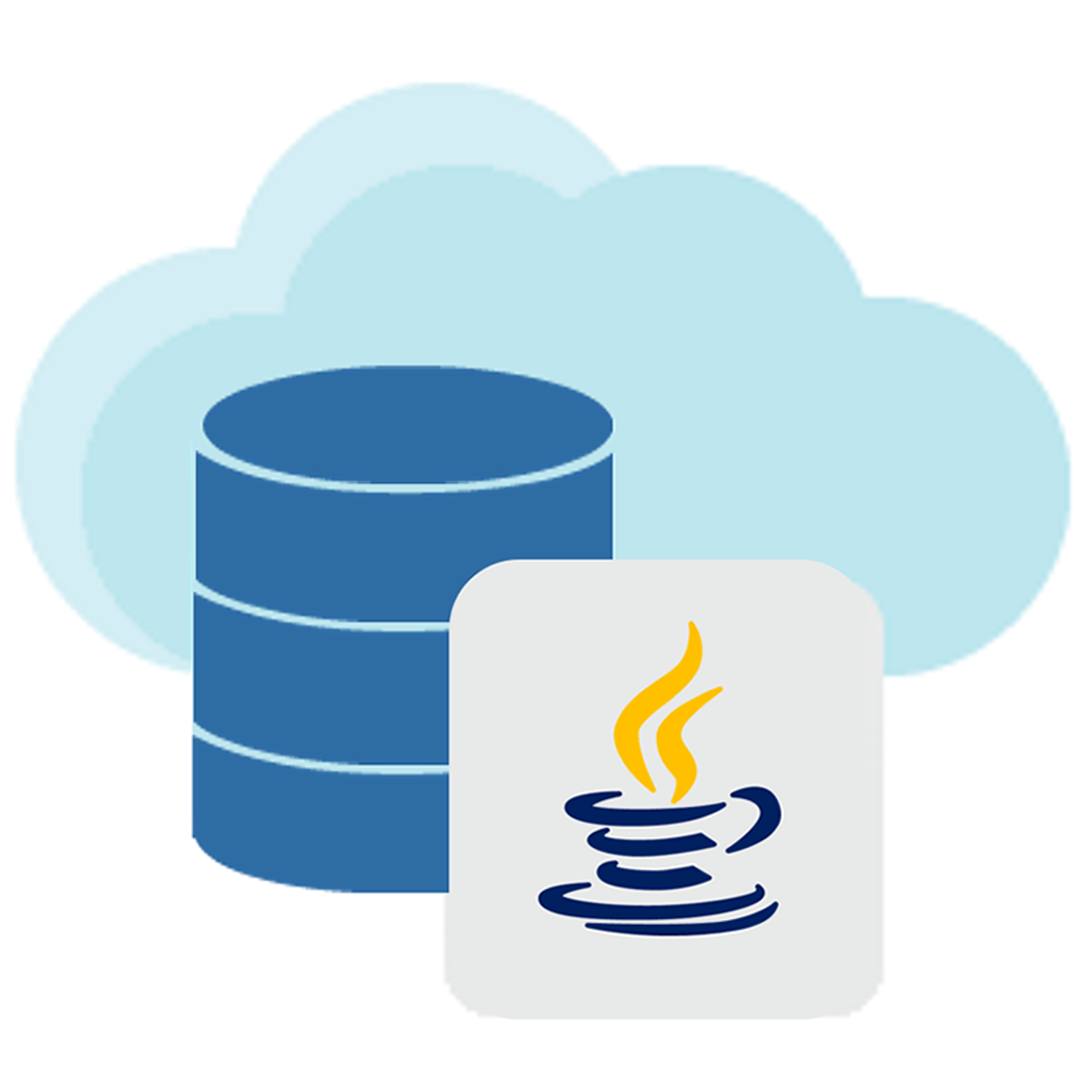Database Security Analyst
Navigating the World of Database Security Analysis
A Database Security Analyst is a specialized IT professional responsible for safeguarding an organization's digital information by protecting its databases from security threats and breaches. In an era where data is a highly valuable asset, these analysts play a critical role in ensuring data confidentiality, integrity, and availability. They are the guardians of sensitive information, working to prevent unauthorized access, cyberattacks, and other vulnerabilities that could compromise an organization's data.
The field of database security is both dynamic and crucial, offering intellectually stimulating challenges. Analysts constantly monitor, assess, and enhance security protocols to keep pace with an ever-evolving threat landscape. This involves a blend of technical expertise, analytical thinking, and a deep understanding of cybersecurity principles. The work is vital across numerous sectors, including finance, healthcare, technology, and government, where analysts protect critical data assets and help organizations comply with data protection regulations. This career path is not just about defense; it's about enabling organizations to use their data confidently and securely, contributing directly to their operational success and strategic decision-making.
Overview of Database Security Analyst Role
Understanding the responsibilities and significance of a Database Security Analyst is the first step for anyone considering this career. This section delves into the core aspects of the role, the environments they work in, and how their function fits within the broader technology landscape.
Defining the Guardian: Core Objectives of a Database Security Analyst
A Database Security Analyst is an IT professional dedicated to protecting an organization's databases from a multitude of security threats and breaches. Their primary mission is to ensure that sensitive data remains confidential, maintains its integrity (accuracy and consistency), and is accessible only to authorized individuals or systems. This involves a proactive approach to identifying vulnerabilities, implementing robust security measures, and responding effectively to any security incidents that may occur.
The core objectives of this role are multi-faceted. Analysts are responsible for developing and implementing security policies and procedures tailored to the organization's specific database environment. They continuously monitor database activity to detect and respond to potential security breaches or anomalous behavior. Furthermore, they conduct regular security assessments and vulnerability scans to proactively identify and address weaknesses before they can be exploited.
Ultimately, a Database Security Analyst strives to create a secure database environment that supports the organization's operational needs while complying with relevant legal and regulatory requirements concerning data protection. Their work is fundamental to maintaining customer trust, protecting intellectual property, and avoiding the significant financial and reputational damage that can result from data breaches.
Where Protectors are Needed: Key Industries Employing Database Security Analysts
Database Security Analysts are in demand across a wide array of industries because nearly every organization today collects, stores, and utilizes data. The need to protect this data is universal, though the specific types of data and regulatory pressures can vary. Key sectors that heavily rely on these professionals include finance and banking, where analysts protect sensitive financial records and customer account information.
The healthcare industry also employs a significant number of Database Security Analysts to safeguard patient health information and ensure compliance with regulations like HIPAA. Technology companies, especially those dealing with large volumes of user data or proprietary information, are major employers. Government agencies at all levels also require these experts to protect national security information, citizen data, and other sensitive datasets.
Other notable industries include retail, e-commerce (protecting customer payment and personal data), and any organization that handles significant amounts of valuable or confidential information. The widespread reliance on data means that opportunities for Database Security Analysts are diverse and not limited to a few niche sectors.
Connecting the Dots: Relationship to Cybersecurity and Data Management
The role of a Database Security Analyst is intrinsically linked to the broader fields of cybersecurity and data management. Cybersecurity is an umbrella term encompassing all efforts to protect computer systems, networks, and data from digital attacks, unauthorized access, and damage. Database security is a specialized domain within cybersecurity, focusing specifically on the protection of database systems and the information they hold.
While a general Cybersecurity Analyst might focus on network security, application security, or overall threat intelligence, a Database Security Analyst possesses deep knowledge of database technologies, data structures, and specific threats targeting databases, such as SQL injection or unauthorized data extraction. They work in concert with broader cybersecurity teams to ensure that database security measures align with the organization's overall security posture.
Similarly, data management involves the processes and policies used to collect, store, organize, and use an organization's data effectively and efficiently. Database Security Analysts collaborate with Database Administrators and Data Architects to ensure that security is built into database design and administration processes. While a Database Administrator focuses on performance, availability, and maintenance, the Database Security Analyst's primary concern is the protection of that data from threats. These roles are complementary and often involve close collaboration.
For those interested in the broader field of data protection, exploring different facets of information security can be beneficial. OpenCourser provides resources for various technology careers, which can be explored through the Information Security category page.
From Daily Vigilance to Strategic Foresight: Responsibilities Unpacked
The responsibilities of a Database Security Analyst span both day-to-day operational tasks and longer-term strategic planning. Daily activities often include monitoring database systems for any signs of security breaches or unusual activity, managing user access controls and permissions, and responding to security alerts or incidents. They might also be involved in applying patches and updates to database software to address known vulnerabilities.
Beyond these immediate tasks, analysts conduct regular vulnerability assessments and security audits to identify potential weaknesses. They analyze security logs and data to identify trends, patterns, and recurring security issues, using this information to refine security measures. Documenting security incidents, policies, and procedures is also a crucial part of their routine.
Strategically, Database Security Analysts contribute to the development and implementation of comprehensive database security policies and frameworks. They research the latest security threats and technologies to ensure the organization's defenses remain current. This can involve recommending security enhancements, collaborating with IT and development teams to integrate security into the software development lifecycle, and ensuring compliance with evolving data protection regulations and industry standards. Their strategic oversight helps ensure that database security aligns with business objectives and effectively mitigates risks.
Core Skills for Database Security Analysts
A successful career as a Database Security Analyst requires a blend of technical proficiency, regulatory understanding, and crucial soft skills. Aspiring analysts should focus on developing a well-rounded skill set to meet the demands of this challenging and rewarding field.
To build a solid foundation in database concepts and security principles, online courses can be an excellent starting point. These courses often cover essential topics in a structured manner, allowing learners to acquire necessary knowledge at their own pace.
The Technical Toolkit: SQL, Encryption, and Vulnerability Assessment
Strong technical skills form the bedrock of a Database Security Analyst's expertise. Proficiency in Structured Query Language (SQL) is fundamental, as it's the standard language for interacting with relational databases. Analysts use SQL not only for routine database operations but also to identify security flaws, audit database configurations, and investigate suspicious activities. Understanding database architecture, various database management systems (DBMS) like Oracle, MySQL, SQL Server, and PostgreSQL, is also critical.
Knowledge of encryption techniques is paramount for protecting data at rest (stored in the database) and data in transit (when moving between the database and applications). This includes understanding different encryption algorithms, key management practices, and how to implement encryption effectively within database environments. Tokenization, a related concept where sensitive data is replaced with unique identification symbols, is another important technique in their arsenal.
Expertise in using vulnerability assessment tools and penetration testing methodologies is also key. These tools and techniques help analysts proactively identify weaknesses in database security, such as misconfigurations, weak passwords, or susceptibility to SQL injection attacks. Familiarity with security information and event management (SIEM) systems helps in correlating and analyzing security alerts from various sources.
The following courses offer deeper insights into specific database technologies and security practices.
For those looking to understand how to defend against specific attack vectors, certain books offer valuable, in-depth knowledge.
Navigating the Rules: Regulatory Knowledge (GDPR, HIPAA, etc.)
Database Security Analysts must be well-versed in a complex web of data protection regulations and industry standards. These regulations dictate how organizations must handle sensitive information, and failure to comply can result in severe penalties, legal action, and reputational damage. Key regulations include the General Data Protection Regulation (GDPR) for personal data of EU residents, the Health Insurance Portability and Accountability Act (HIPAA) for protected health information in the U.S., and the Payment Card Industry Data Security Standard (PCI-DSS) for organizations handling credit card data.
Understanding the specific requirements of these regulations as they pertain to data storage, access controls, encryption, audit logging, and breach notification is crucial. Analysts play a key role in implementing technical controls and processes to meet these compliance mandates. They often participate in compliance audits and must be able to demonstrate that the organization's database security measures are adequate.
This knowledge isn't static; regulations evolve, and new ones emerge. Therefore, a commitment to continuous learning in this area is essential for any Database Security Analyst. Staying informed about changes in the regulatory landscape helps ensure ongoing compliance and data protection.
The following books offer comprehensive guidance on security controls and standards, which are often influenced by regulatory requirements.
Beyond the Code: Soft Skills for Effective Security
While technical prowess is vital, soft skills are equally important for a Database Security Analyst to be effective. Strong analytical and problem-solving skills are essential for identifying security threats, investigating incidents, and developing effective solutions. They need to think critically, often under pressure, to diagnose issues and respond appropriately.
Communication skills are also paramount. Analysts must be able to clearly explain complex technical security issues to non-technical stakeholders, including management and other employees. This includes communicating risks, justifying security investments, and providing guidance on security best practices. Effective written communication is necessary for documenting policies, procedures, incident reports, and audit findings.
Collaboration and teamwork are crucial, as Database Security Analysts rarely work in isolation. They interact regularly with IT operations teams, software developers, network security teams, compliance officers, and business users. The ability to work effectively as part of a team to achieve common security goals is a hallmark of a successful analyst. Attention to detail is another critical soft skill, as even minor oversights in security configurations can lead to significant vulnerabilities.
Staying Ahead of the Curve: Emerging Skill Demands
The field of database security is constantly evolving in response to new technologies and emerging threats. Analysts must be committed to continuous learning to keep their skills relevant. One significant area of growing demand is cloud security, specifically securing databases hosted in cloud environments like AWS, Azure, or Google Cloud. This requires understanding cloud-native security tools, identity and access management in the cloud, and the shared responsibility model for security.
The rise of Artificial Intelligence (AI) and Machine Learning (ML) is also impacting database security. There's a growing need for analysts who can understand and potentially leverage AI-driven threat detection tools. Conversely, they also need to be aware of how attackers might use AI to launch more sophisticated attacks. Understanding AI ethics in automated threat response is also becoming important.
As organizations adopt DevOps practices, integrating security into the development pipeline (often called DevSecOps) is another emerging skill. This involves working closely with development and operations teams to build security into applications and databases from the ground up. The increasing sophistication of cyberattacks also means that skills in advanced threat analytics, digital forensics, and incident response will continue to be highly valued.
Online learning platforms like OpenCourser offer a wealth of courses on emerging technologies, helping professionals stay updated. For instance, courses on cloud database solutions are readily available.
Formal Education Pathways
For those aspiring to become Database Security Analysts, a structured educational foundation is often the first step. Several academic routes can lead to this career, typically starting at the undergraduate level and potentially extending to specialized graduate studies and professional certifications. Understanding these pathways can help individuals plan their educational journey effectively.
Laying the Groundwork: Relevant Undergraduate Degrees
A bachelor's degree is generally considered the minimum educational requirement for entry-level positions in database security or broader information security roles. The most common and relevant fields of study include Computer Science, Information Technology (IT), Information Systems, or a specialized degree in Cybersecurity. These programs typically provide a foundational understanding of computer networks, operating systems, programming, database management, and an introduction to security principles.
A Computer Science degree often offers a strong theoretical and technical background, including software development and algorithmic thinking, which are valuable for understanding system vulnerabilities. An Information Technology or Information Systems program might focus more on the practical application of technology within organizations, including network administration and systems management. Cybersecurity-specific degrees are becoming more prevalent and offer a curriculum directly focused on security concepts, threat analysis, and defensive strategies.
Regardless of the specific major, coursework in database management, networking, and programming languages (like Python or Java) is highly beneficial. Prospective students should look for programs that offer opportunities for hands-on lab work and projects related to security and databases.
To supplement a formal degree, online courses can provide specialized knowledge in database development and administration, which are core to understanding database security.
Deepening Expertise: Graduate Programs and Specializations
While a bachelor's degree can open doors to entry-level positions, a master's degree can provide a deeper level of expertise and may be preferred for more advanced or specialized roles in database security. Graduate programs in Cybersecurity, Information Assurance, or Computer Science with a security specialization can offer advanced coursework in areas like cryptography, advanced network security, ethical hacking, digital forensics, and security policy and management.
Some universities offer specific concentrations or even entire master's programs focused on data security or database security. These programs delve into the intricacies of securing large-scale database systems, data privacy regulations, advanced data encryption methods, and secure database design. Such specialization can be particularly valuable for those aiming for senior technical roles or leadership positions in database security.
A master's degree can also be beneficial for individuals transitioning into cybersecurity from a different technical field, providing the focused knowledge and credentials needed for the career change. Research-oriented master's programs may also lead to opportunities in academia or cutting-edge security research.
Validating Skills: Certifications like CISSP, CISA, and Vendor-Specific Credentials
In the field of information security, professional certifications are highly valued and can significantly enhance career prospects. They serve as an objective validation of an individual's knowledge and skills in specific areas of security. For Database Security Analysts, several certifications are particularly relevant. The Certified Information Systems Security Professional (CISSP) is a globally recognized, advanced-level certification covering a broad range of security topics, including asset security, security architecture, and risk management. It often requires several years of professional experience.
The Certified Information Systems Auditor (CISA) is another respected certification, particularly for those involved in auditing, controlling, and assuring information systems, including databases. Other general security certifications like CompTIA Security+ can be a good starting point for those newer to the field. Vendor-specific certifications, such as those offered by Oracle, Microsoft (for SQL Server), or cloud providers (AWS, Azure, Google Cloud) for their database and security services, can demonstrate expertise in particular technologies that an organization uses.
While certifications alone are not a substitute for hands-on experience, they can make a candidate more competitive in the job market, potentially lead to higher salaries, and are often preferred or even required by employers for certain roles. Continuous learning and maintaining these certifications through ongoing professional development are also key aspects of a security professional's career.
Individuals preparing for certification exams may find specialized online courses beneficial.
For further reading on security standards and practices often covered in certification exams, consider these texts.
Pushing Boundaries: Research Opportunities in Database Security Academia
For individuals with a deep interest in advancing the field of database security, academia offers avenues for research and innovation. Universities and research institutions are actively involved in exploring new frontiers in data protection, driven by the evolving threat landscape and the emergence of new technologies. Research areas can include developing novel encryption algorithms, creating more robust access control models, designing AI-powered intrusion detection systems for databases, and exploring security for emerging database paradigms like blockchain or quantum-resistant databases.
Pursuing a Ph.D. in Computer Science or a related field with a dissertation focused on database security is the typical path for a research career in academia. This involves conducting original research, publishing in scholarly journals and conferences, and contributing to the body of knowledge in the field. Academic researchers often collaborate with industry partners to address real-world security challenges and translate research findings into practical solutions.
Beyond traditional university roles, research opportunities also exist in corporate research labs and government agencies that focus on cybersecurity. These roles involve investigating long-term security challenges and developing next-generation security technologies. A strong academic background, coupled with a passion for discovery and problem-solving, is essential for a career in database security research.
Self-Directed Learning Strategies
For those who are looking to enter the field of database security, particularly career pivoters or individuals who may face financial constraints preventing formal education, self-directed learning can be a powerful and accessible pathway. With dedication and the right resources, you can build a strong foundation and acquire practical skills. The journey requires discipline, but the wealth of information available online makes it more achievable than ever.
OpenCourser itself is a testament to the power of self-directed learning, offering a vast catalog of online courses in Information Security and related fields. The platform's features, like the "Save to list" button and summarized reviews, can help learners curate their own learning paths and select high-quality resources.
Constructing Your Proving Ground: Building Home Lab Environments
One of the most effective ways to learn database security is by doing. Setting up a home lab environment provides a safe and controlled space to experiment with different database systems, security configurations, and attack scenarios without risking real-world data. Your lab can start simply with virtual machines running various operating systems and database software like MySQL, PostgreSQL, or SQL Server Express Edition, many of which are free for personal use.
In your lab, you can practice installing and hardening databases, configuring user accounts and permissions, implementing encryption, and setting up audit logging. You can also simulate common vulnerabilities and practice detecting and mitigating them. For example, you could set up a vulnerable web application connected to a database and attempt SQL injection attacks to understand how they work and how to defend against them.
Documenting your lab setup, experiments, and findings is also a valuable learning exercise. This hands-on experience is invaluable and can significantly enhance your understanding of theoretical concepts. It also provides concrete examples to discuss during job interviews, showcasing your initiative and practical skills.
These courses can provide practical experience, often through guided projects, which can be replicated or expanded upon in a home lab.
Harnessing the Commons: Open-Source Security Tools for Skill Development
The open-source community offers a plethora of powerful security tools that can be used for learning and skill development in database security. Familiarizing yourself with these tools not only enhances your technical toolkit but also provides insights into industry-standard practices. Tools like Nmap for network scanning, Wireshark for packet analysis, and Metasploit Framework for penetration testing can be used (responsibly and ethically) within your home lab to understand how attackers might probe systems and how defenses can be tested.
For database-specific security, open-source tools exist for vulnerability scanning, auditing, and monitoring. For example, sqlmap is a popular open-source penetration testing tool that automates the process of detecting and exploiting SQL injection flaws. Learning to use such tools effectively, understanding their output, and knowing their limitations are crucial skills. Many of these tools have extensive documentation and active online communities where you can find tutorials and support.
Engaging with open-source projects, perhaps by contributing to documentation or even code, can be another excellent way to learn and network with other security professionals. This practical experience with widely-used tools is highly valued by employers.
Consider exploring books that discuss various tools and techniques used in security assessments.
Sharpening Your Skills: CTFs and Bug Bounty Programs
Participating in Capture The Flag (CTF) competitions is an engaging and challenging way to hone your cybersecurity skills, including those relevant to database security. CTFs are online challenges where participants solve security puzzles to find "flags." Many CTFs include challenges related to web application security, SQL injection, cryptography, and reverse engineering, all of which can be applicable to protecting databases.
Bug bounty programs offer another avenue for practical experience. In these programs, organizations reward individuals for finding and reporting security vulnerabilities in their systems. While diving directly into bug bounties might be challenging for beginners, platforms often have resources and communities to help newcomers learn. Focusing on web applications that interact with databases can provide real-world experience in identifying database-related vulnerabilities.
Both CTFs and responsible participation in bug bounty programs allow you to apply your knowledge in realistic scenarios, learn from others, and build a portfolio of accomplishments. They are excellent ways to demonstrate your passion and capabilities to potential employers, especially when transitioning into the field.
Learning from the Source: Leveraging Vendor Documentation
Major database vendors like Oracle, Microsoft, AWS, and Google provide extensive documentation for their products, and this is an often-underutilized goldmine of information for aspiring Database Security Analysts. This documentation typically includes detailed security guides, best practice recommendations, and instructions on how to configure various security features specific to their database systems.
By studying vendor documentation, you can learn about built-in security controls, authentication mechanisms, encryption options, auditing capabilities, and patching procedures directly from the source. This knowledge is highly practical as it relates to the specific technologies used in many organizations. For example, learning about Oracle's Advanced Security option or Microsoft SQL Server's Transparent Data Encryption (TDE) directly from their official documentation provides deep, actionable insights.
Many vendors also offer free tiers or trial versions of their database products, allowing you to combine your study of their documentation with hands-on practice in your home lab. This approach ensures you are learning current, vendor-approved security practices, which is highly valuable in the job market.
To gain foundational knowledge specific to major database platforms, these courses can be very helpful.
Career Progression and Hierarchy
The career path for a Database Security Analyst offers various avenues for growth and specialization. Starting from entry-level positions, professionals can advance to more senior roles, take on leadership responsibilities, or transition into related areas within cybersecurity and IT. Understanding this progression can help individuals map out their career goals and identify the steps needed to achieve them.
For those starting out or looking to understand where this career can lead, OpenCourser’s Career Development resources provide broader context on navigating professional growth in the tech industry.
The Starting Gate: Entry-Level Roles and Responsibilities
Individuals typically enter the database security field in roles such as Junior Security Analyst, Security Administrator, or perhaps as a Database Administrator with a strong security focus. In these initial positions, responsibilities often involve supporting senior analysts in their tasks. This can include monitoring security alerts, assisting with vulnerability assessments, managing user access requests, applying patches, and helping to maintain security documentation.
Entry-level professionals are expected to have a solid understanding of fundamental security concepts, database basics, and common security tools. They learn on the job, gaining practical experience in implementing and monitoring security measures within their organization's specific environment. These roles are crucial for building a practical skill set and understanding the day-to-day operational aspects of database security.
While direct entry into a "Database Security Analyst" title might sometimes require prior IT or security experience, roles like IT support with a security component or junior network administrator can also serve as stepping stones. The key is to gain exposure to security principles and practices early on. According to some sources, entry-level salaries might range from $60,000 to $80,000 per year, though this can vary significantly by location and organization.
Gaining a broad understanding of database administration and application can be beneficial for entry-level candidates.
Branching Out: Mid-Career Transitions and Specializations
With a few years of experience, Database Security Analysts can pursue various specializations and mid-career transitions. One common path is to deepen expertise in a particular database technology (e.g., becoming an Oracle security specialist) or a specific security domain like data loss prevention (DLP), database forensics, or security for NoSQL databases. Another increasingly important area of specialization is cloud database security, focusing on platforms like AWS, Azure, or Google Cloud.
Professionals might move into roles with more responsibility, such as Senior Database Security Analyst, where they might lead projects, design security architectures, or mentor junior analysts. Some may transition into security consulting, offering their expertise to multiple clients. Others might leverage their database security knowledge to move into broader cybersecurity roles like Security Architect or Penetration Tester, if they develop the necessary complementary skills.
Mid-career is also a time when many professionals pursue advanced certifications to validate their specialized skills and enhance their marketability. Continuous learning is crucial at this stage to keep up with the evolving threat landscape and new technologies.
Courses focusing on specific database platforms and advanced topics are suitable for mid-career professionals looking to specialize.
Reaching the Top: Leadership Paths and Technical Expertise
For experienced Database Security Analysts, leadership and advanced technical roles represent the pinnacle of the career path. One common leadership trajectory is towards a Database Security Manager role, leading a team of analysts and overseeing the organization's database security program. Further advancement could lead to broader security management positions like Information Security Manager or even Chief Information Security Officer (CISO), responsible for the overall security strategy of the organization.
Alternatively, some professionals may choose to deepen their technical expertise, becoming Principal Database Security Engineers or Security Architects. These roles involve designing and implementing complex security solutions, tackling the most challenging security problems, and serving as the go-to technical expert within the organization. They often drive innovation in security practices and stay at the forefront of new security technologies.
Salary expectations at these senior levels can be quite significant, often exceeding $100,000 or $120,000 annually, and potentially much higher for CISO or top-tier architect roles, depending on the organization's size, industry, and location. Both leadership and deep technical expert paths require a strong foundation in database security, continuous learning, and often, advanced degrees or certifications.
Advanced understanding of database auditing and security implementation is crucial for leadership roles. Books on these topics can provide valuable insights.
Exploring New Terrains: Cross-Functional Moves into Compliance or DevOps
The skills and knowledge gained as a Database Security Analyst can also open doors to cross-functional roles in related areas. One such area is compliance. With their deep understanding of data protection regulations (like GDPR, HIPAA, PCI-DSS) and experience implementing security controls, analysts are well-positioned to move into roles like Compliance Officer, IT Auditor, or Risk Manager. These roles focus on ensuring the organization adheres to legal, regulatory, and internal policy requirements.
Another burgeoning area is DevOps, or more specifically, DevSecOps. As organizations increasingly adopt agile development and continuous integration/continuous deployment (CI/CD) pipelines, there's a growing need for security professionals who can integrate security practices throughout the software development lifecycle. A Database Security Analyst with strong collaboration skills and an understanding of development processes can transition into a DevSecOps Engineer role, helping to automate security testing, build secure infrastructure as code, and embed security into the development culture.
These cross-functional moves often require acquiring some new skills or knowledge specific to the target role but build upon the strong foundation of security and technical expertise developed as a Database Security Analyst. They offer opportunities to apply security skills in different contexts and contribute to the organization in new ways.
For those interested in the intersection of development and security, understanding data handling in application development is key.
Database Security Analyst in Market Context
Understanding the market context for Database Security Analysts provides valuable insights into career prospects, demand, and the economic impact of their work. This section examines industry trends, hiring patterns, and the overall value these professionals bring to organizations.
The Price of Protection: Impact of Data Breaches on Corporate Valuations
Data breaches can have a devastating financial impact on organizations, extending far beyond the immediate costs of remediation. When sensitive data is compromised, companies face expenses related to forensic investigations, legal fees, regulatory fines, customer notifications, and credit monitoring services for affected individuals. However, the damage often runs deeper, affecting a company's valuation and long-term financial health.
News of a significant data breach can erode customer trust and loyalty, leading to customer churn and lost future revenue. Reputational damage can be severe and long-lasting, impacting brand image and investor confidence. Studies have shown that a company's stock price often takes a significant hit immediately following the announcement of a data breach, and recovery can be slow. The perceived inability to protect critical assets can lead to a re-evaluation of the company's overall risk profile and future prospects by the market.
The work of Database Security Analysts is therefore directly linked to preserving corporate value. By preventing data breaches, they help organizations avoid these substantial financial losses, maintain customer trust, and protect their reputation, all of which are critical components of shareholder value. The increasing awareness of these high stakes contributes to the growing demand for skilled security professionals. According to IBM's Cost of a Data Breach Report, the global average cost of a data breach reached USD 4.45 million in 2023.
Sector-Specific Sentinels: Hiring Trends Across Industries
Hiring trends for Database Security Analysts vary across industries, often dictated by the sensitivity of the data handled and the regulatory landscape. Industries like finance (banking, investment firms) and healthcare (hospitals, insurance providers) consistently show strong demand due to the highly sensitive nature of financial and patient data, respectively, and strict regulatory requirements like PCI-DSS and HIPAA. These sectors often have mature security programs and dedicated budgets for database security roles.
The technology sector, including software companies, cloud service providers, and e-commerce platforms, is another major employer. These organizations manage vast amounts of user data and intellectual property, making robust database security essential. Government agencies also continue to hire Database Security Analysts to protect classified information and public sector data.
Emerging trends indicate growing demand in other sectors as well. Retailers, particularly those with large online presences, are increasingly focused on protecting customer payment information and personal data. Manufacturing companies are also recognizing the need to secure industrial control systems and proprietary design data. As more industries undergo digital transformation and become more data-reliant, the demand for professionals who can secure these digital assets is expected to grow broadly.
The U.S. Bureau of Labor Statistics projects a 33% growth in employment for information security analysts (a category that includes database security) from 2023 to 2033, much faster than the average for all occupations, indicating a robust job market.
Insourcing vs. Outsourcing: Team Dynamics and Security Strategies
Organizations face a strategic choice when it comes to structuring their database security efforts: building an in-house team versus outsourcing to a third-party provider, or a hybrid approach. The decision often depends on factors like the organization's size, complexity of its database environment, internal expertise, budget, and risk appetite.
Many large enterprises, particularly those in highly regulated industries or with extremely sensitive data, prefer to maintain an in-house team of Database Security Analysts. This provides greater control over security operations, deeper integration with internal IT teams, and ensures that security personnel have a thorough understanding of the organization's specific systems and business context. An in-house team can also respond more quickly to incidents and tailor security measures precisely to the organization's needs.
Smaller or medium-sized businesses, or those with less critical data security needs, might opt to outsource some or all of their database security functions to a Managed Security Service Provider (MSSP) or a specialized cybersecurity firm. Outsourcing can provide access to specialized expertise and advanced security tools that might be too costly to maintain in-house. It can also offer scalability and 24/7 monitoring capabilities. However, it requires careful vendor selection, robust service level agreements (SLAs), and ongoing oversight to ensure that security objectives are met. Some organizations adopt a hybrid model, retaining in-house strategic oversight and incident response capabilities while outsourcing routine monitoring or specialized assessments.
Understanding these different models is important for Database Security Analysts, as it can influence the type of roles available and the nature of their work environment.
Hotspots of Opportunity: Geographic Demand for Database Security Talent
The demand for Database Security Analysts, like many technology roles, tends to be concentrated in areas with a high density of businesses, particularly in the technology, finance, and healthcare sectors. Major metropolitan areas and established tech hubs are often hotspots for employment opportunities. Cities known for their strong technology presence, such as those in Silicon Valley, Seattle, New York City, Boston, and Austin in the United States, typically have a significant number of openings.
Financial centers like New York, London, Frankfurt, and Singapore also exhibit strong demand due to the concentration of financial institutions requiring robust data protection. Similarly, areas with significant government or defense contracting presence, like the Washington D.C. metropolitan area, often have numerous roles for security professionals, including those specializing in database security.
However, with the rise of remote work, geographic limitations are becoming less rigid for some positions. While certain roles, especially those in highly sensitive environments, may still require on-site presence, many organizations are now open to hiring remote Database Security Analysts. This trend can expand opportunities for skilled professionals regardless of their physical location, though competition for remote roles can also be higher. Keeping an eye on job boards and industry reports can provide insights into current geographic hiring trends and emerging hotspots.
Technical Tools Ecosystem
A Database Security Analyst relies on a diverse array of technical tools to effectively protect an organization's data. Understanding this ecosystem, from monitoring solutions to vulnerability scanners and cloud-specific tools, is crucial for performing the job effectively. While vendor neutrality is important, familiarity with the capabilities of common tool categories is essential.
Keeping Watch: Database Activity Monitoring (DAM) Tools
Database Activity Monitoring (DAM) tools are a cornerstone of database security, providing real-time surveillance of database access and activity. These tools capture and analyze all database transactions, including queries, administrative actions, and login attempts. The primary goal of DAM is to detect and alert on suspicious or unauthorized behavior that could indicate a security breach, policy violation, or internal threat.
DAM solutions typically offer features like granular logging of SQL statements, alerts based on predefined security policies (e.g., access to sensitive tables outside of business hours), and reporting capabilities for compliance and forensic analysis. Some advanced DAM tools also incorporate user behavior analytics (UBA) to identify anomalous patterns that might signify a compromised account or insider threat. They can also help enforce separation of duties by monitoring privileged user activity.
By providing visibility into who is accessing what data, when, and how, DAM tools empower Database Security Analysts to identify potential threats quickly, respond to incidents effectively, and demonstrate compliance with data protection regulations. Selecting, implementing, and managing DAM tools, as well as interpreting their output, are key responsibilities for analysts in this field.
The following books provide broader context on application and software security, which often involves database interactions and the principles behind monitoring.
Probing for Weaknesses: Vulnerability Scanners and SQL Injection Detection
Vulnerability scanners are indispensable tools for proactively identifying security weaknesses in database systems and their supporting infrastructure. These automated tools scan databases for known vulnerabilities, misconfigurations, weak passwords, missing patches, and other security flaws that could be exploited by attackers. Database-specific scanners can check for issues like improper access controls, overly broad privileges, and settings that don't align with security best practices.
A critical subset of this category includes tools specifically designed to detect susceptibility to SQL injection attacks. SQL injection remains one of the most prevalent and damaging threats to web applications that interact with databases. These tools can automatically test web application inputs and database queries for vulnerabilities that would allow an attacker to execute malicious SQL code, potentially leading to data theft, modification, or deletion.
Database Security Analysts use the reports generated by these scanners to prioritize remediation efforts, working with database administrators and developers to fix identified vulnerabilities. Regular scanning and prompt remediation are crucial components of a robust database security program. Understanding how to interpret scanner results, differentiate between false positives and genuine threats, and track remediation progress are key skills for analysts.
Understanding the attacker's perspective is vital. These books offer insights into how vulnerabilities are exploited.
Securing the Skies: Cloud-Native Security Solutions
As organizations increasingly migrate their databases to the cloud, understanding and utilizing cloud-native security solutions becomes paramount. Major cloud providers like Amazon Web Services (AWS), Microsoft Azure, and Google Cloud Platform (GCP) offer a suite of tools and services specifically designed to secure cloud-based resources, including databases. Examples include AWS GuardDuty for threat detection, Azure Defender for Cloud (which includes capabilities for SQL servers and other databases), and Google Cloud's Security Command Center.
These cloud-native tools often provide features like automated threat detection, vulnerability management, identity and access management (IAM) integration, data encryption services (like AWS Key Management Service or Azure Key Vault), and sophisticated logging and monitoring capabilities. They are designed to work seamlessly with the provider's database services (e.g., Amazon RDS, Azure SQL Database, Google Cloud SQL).
Database Security Analysts working with cloud environments need to be proficient in configuring and managing these tools, understanding the shared responsibility model for security in the cloud, and implementing security best practices specific to each cloud platform. The ability to secure data across hybrid environments (on-premises and cloud) is also an increasingly valuable skill.
For those looking to build expertise in cloud database security, targeted online courses are available.
Balancing Act: Open-Source vs. Enterprise Tool Tradeoffs
When building a database security toolkit, organizations and analysts often face the choice between open-source tools and commercial enterprise solutions. Each approach has its own set of advantages and disadvantages, and the optimal choice often depends on factors like budget, in-house expertise, specific security requirements, and the scale of the database environment.
Open-source security tools can be highly cost-effective, as they typically do not involve licensing fees. Many are very powerful, widely used, and benefit from active community support and development. They offer transparency, as their source code is available for inspection, and can be highly customizable. However, open-source tools may lack dedicated customer support, might require more technical expertise to configure and maintain, and sometimes have less comprehensive documentation or fewer user-friendly interfaces compared to commercial products.
Enterprise security tools, on the other hand, usually come with professional support, regular updates, and often, more polished interfaces and integrated management dashboards. They may offer more extensive features, broader platform support, and easier integration with other enterprise systems. However, they can be expensive, involving significant upfront costs and ongoing subscription fees. Vendor lock-in can also be a concern with proprietary solutions.
Many Database Security Analysts find that a combination of both open-source and enterprise tools provides the most comprehensive and flexible security posture. The ability to evaluate the tradeoffs and select the right tools for specific tasks is a valuable skill for analysts.
Ethical Dilemmas in Database Security
The role of a Database Security Analyst, while primarily technical, is not devoid of complex ethical considerations. These professionals are guardians of sensitive information, and their actions (or inactions) can have significant consequences for individuals and organizations. Navigating these ethical quandaries requires a strong moral compass and a deep understanding of privacy principles and professional responsibilities.
The Tightrope Walk: Balancing Privacy vs. Security in Data Access
One of the most persistent ethical challenges for Database Security Analysts is balancing the need for robust security with the right to privacy. To effectively monitor for threats and investigate incidents, analysts may require access to sensitive data or logs of user activity. However, this access must be carefully controlled and ethically managed to prevent misuse and protect individual privacy.
For example, while implementing comprehensive logging and monitoring is crucial for security, collecting excessive personal data or retaining it indefinitely can infringe on privacy rights. Analysts must work to ensure that security measures are proportionate to the risks and that data minimization principles are followed. They need to consider who has access to sensitive information, under what circumstances, and for how long, always weighing the security benefit against the potential privacy impact.
Developing clear policies, implementing strong access controls (like role-based access), and using privacy-enhancing technologies (such as data masking or anonymization where appropriate) are key to navigating this balance. Transparency about data handling practices and adherence to relevant data protection laws (like GDPR) are also crucial. This dilemma often requires careful judgment and a commitment to upholding ethical data stewardship.
The Whistleblower's Burden: Protocols for Vulnerabilities
Database Security Analysts may encounter situations where they discover significant vulnerabilities that are not being adequately addressed by their organization, perhaps due to cost, perceived low risk by management, or other internal pressures. This can create a serious ethical dilemma: what is the analyst's responsibility if they believe the organization is putting data at undue risk?
Most organizations have internal reporting channels for security concerns, and analysts should typically follow these protocols first. However, if these channels prove ineffective or if there's a genuine belief of imminent and severe harm, the situation becomes more complex. The decision to "blow the whistle" externally, such as to regulatory bodies or the public, is a grave one with potential personal and professional repercussions.
Ethical frameworks and professional codes of conduct (such as those from organizations like (ISC)² or ISACA) can provide guidance, but each situation is unique. The primary consideration should always be the protection of data and the prevention of harm, balanced with professional loyalty and legal obligations. Documenting concerns thoroughly and seeking advice from trusted, impartial sources (if possible) are important steps in such challenging circumstances.
Global Data, Local Views: Cultural Differences in Data Ownership Concepts
In an increasingly interconnected world, data often flows across national borders. Database Security Analysts working for multinational organizations or handling data from diverse populations may encounter varying cultural perspectives on data ownership, privacy, and control. What is considered acceptable data handling in one culture might be viewed as a serious privacy violation in another.
For instance, attitudes towards government surveillance, the collection and use of personal data by corporations, and individual rights to data access and deletion can differ significantly across countries and cultures. While legal frameworks like GDPR aim to harmonize data protection standards, underlying cultural norms still play a role in shaping expectations and ethical interpretations.
Analysts need to be sensitive to these cultural nuances and strive to implement security measures that are respectful of diverse perspectives, in addition to complying with all applicable laws in the jurisdictions where the data originates and is processed. This requires a global mindset and an understanding that a one-size-fits-all approach to data security and privacy may not always be appropriate or ethically sound.
The Rise of the Machines: AI Ethics in Automated Threat Response
As artificial intelligence (AI) and machine learning (ML) become more integrated into security tools, new ethical dilemmas are emerging, particularly concerning automated threat response systems. AI can be highly effective at detecting anomalous patterns and potential threats in real-time, but allowing AI to automatically block users, shut down systems, or delete data raises important ethical questions.
What happens if an AI system makes an error (a false positive) and incorrectly blocks legitimate access or takes disruptive action based on flawed analysis? Who is accountable for such errors? How can bias in AI algorithms (potentially learned from historical data) lead to unfair or discriminatory outcomes in security enforcement? These are complex issues that Database Security Analysts, especially those involved in selecting or configuring AI-powered security tools, must consider.
Ensuring that automated systems have appropriate human oversight, clear protocols for overriding AI decisions, and mechanisms for redress when errors occur is crucial. Transparency in how AI systems make decisions (explainable AI) and ongoing auditing for bias and effectiveness are also important ethical considerations. The goal is to leverage the power of AI to enhance security without sacrificing fairness, accountability, or due process.
Future Challenges for Database Security Analysts
The landscape of database security is in constant flux, shaped by technological advancements, evolving threat actor tactics, and shifting regulatory environments. Database Security Analysts must be forward-thinking, anticipating future challenges to effectively protect their organizations' valuable data assets. Staying informed and adaptable is key to navigating these future hurdles.
The Quantum Question: Impact on Encryption Standards
One of the most significant long-term challenges looming over data security is the advent of practical quantum computing. While still in developmental stages, large-scale quantum computers have the potential to break many of the public-key encryption algorithms currently used to protect data at rest and in transit, including those safeguarding databases. Algorithms like RSA and Elliptic Curve Cryptography (ECC), which underpin much of modern secure communication and data protection, could become vulnerable.
This poses a profound challenge for Database Security Analysts, who rely on these encryption standards. The transition to quantum-resistant cryptography (also known as post-quantum cryptography) will be a complex and lengthy process. Analysts will need to stay abreast of research and standardization efforts in this area, plan for future migrations to new cryptographic algorithms, and assess the risks to long-lived data that is encrypted today but might need to remain secure in a post-quantum world.
This challenge requires not just technical adaptation but also strategic planning. Organizations will need to inventory their cryptographic assets, identify systems that will require upgrades, and develop roadmaps for adopting new, quantum-resistant standards once they become widely available and vetted.
Data on the Move: Edge Computing and Distributed Database Risks
The rise of edge computing, where data is processed closer to its source (e.g., IoT devices, remote sensors), and the increasing use of distributed database technologies present new security challenges. In traditional centralized database architectures, security efforts could be focused on a well-defined perimeter. However, with data being generated, stored, and processed across a more dispersed and heterogeneous environment, the attack surface expands significantly.
Securing data on numerous edge devices, ensuring secure communication between edge nodes and central databases, and managing consistent security policies across distributed database instances become more complex. Each edge device can be a potential point of vulnerability, and ensuring the physical security of these devices, along with their data, is a growing concern. Analysts will need to adapt their strategies to address these distributed risks, incorporating techniques like endpoint security for edge devices, robust authentication and authorization across the distributed network, and secure data synchronization protocols.
The dynamic nature of edge environments and the sheer volume of data generated also require scalable and automated security monitoring and response capabilities. Understanding the unique security implications of different distributed database models (e.g., sharded databases, blockchain-based ledgers) will also be crucial.
Exploring topics like cloud database security can provide foundational knowledge for understanding distributed data environments.
The Learning Curve: Skills Obsolescence in a Rapidly Changing Threat Landscape
The cybersecurity threat landscape is incredibly dynamic, with attackers constantly developing new tools, techniques, and procedures (TTPs). This rapid evolution means that the skills and knowledge that are effective today can quickly become outdated. For Database Security Analysts, this poses an ongoing challenge of skills obsolescence if they do not commit to continuous learning and professional development.
New types of vulnerabilities are discovered, novel attack vectors emerge, and the technologies that analysts are tasked with protecting (databases, cloud platforms, applications) are themselves constantly being updated and changed. What constituted a secure configuration yesterday might be vulnerable tomorrow. Analysts must actively seek out new information, stay current with threat intelligence, learn new tools and technologies, and adapt their security strategies accordingly.
This requires a proactive approach to learning, whether through formal training, industry certifications, attending conferences, participating in security communities, or self-study. Employers also play a role by fostering a culture of learning and providing resources for professional development. The ability to learn quickly and adapt to change is a critical survival skill for any cybersecurity professional, especially in a specialized field like database security.
OpenCourser's extensive catalog, including its Information Security section, provides numerous avenues for continuous learning, allowing professionals to find courses on the latest threats and defense mechanisms.
A World of Rules: Global Regulatory Fragmentation Challenges
As data becomes increasingly global, so too does the web of regulations governing its protection. Organizations often operate across multiple jurisdictions, each with its own set of data privacy and security laws. This global regulatory fragmentation presents a significant challenge for Database Security Analysts, who must help their organizations navigate this complex and sometimes conflicting legal landscape.
Ensuring that database security practices comply with a multitude of international, national, and even regional regulations (like GDPR in Europe, CCPA in California, LGPD in Brazil, and many others) requires meticulous attention to detail and a deep understanding of each regulation's specific requirements regarding data handling, consent, cross-border data transfers, breach notification, and individual data rights.
The challenge is compounded by the fact that these regulations are often subject to change and interpretation. Analysts must work closely with legal and compliance teams to understand their obligations and translate them into effective technical security controls. This requires not only technical expertise but also strong communication and collaboration skills to ensure that security measures are both effective and legally sound across all operational territories.
Frequently Asked Questions
This section addresses common questions that individuals considering a career as a Database Security Analyst, or those already in the field, might have. The answers aim to provide practical insights to aid in career decisions and understanding of the role.
Can I transition from network security to database security?
Yes, transitioning from network security to database security is a viable and often logical career move. Professionals in network security already possess a strong foundation in general cybersecurity principles, threat landscapes, and often, experience with security tools and incident response. This background provides a significant advantage.
To make the transition successful, you would need to deepen your knowledge specifically in database technologies (e.g., SQL, different DBMS architectures like Oracle, MySQL, PostgreSQL), common database vulnerabilities (like SQL injection, misconfigurations, access control issues), data privacy regulations (GDPR, HIPAA), and database-specific security tools (like DAM solutions, database vulnerability scanners).
Consider pursuing certifications focused on database security or specific database vendor technologies. Online courses focusing on database administration and security can also be extremely helpful in bridging any knowledge gaps. Highlighting your existing security experience and demonstrating a clear commitment to learning the nuances of database protection will be key when seeking such roles. Many skills, such as analytical thinking, problem-solving, and attention to detail, are highly transferable.
Courses that cover database fundamentals and specific security testing techniques are excellent for this transition.
How critical are certifications compared to hands-on experience?
Both certifications and hands-on experience are highly valuable in the field of database security, and they often complement each other rather than being mutually exclusive. For individuals starting out or looking to transition into the field, certifications like CompTIA Security+, or vendor-specific database certifications, can help demonstrate foundational knowledge and a commitment to the profession, potentially opening doors to entry-level positions.
However, as you progress in your career, hands-on experience becomes increasingly critical. Practical experience in designing, implementing, and managing database security controls, responding to incidents, and conducting vulnerability assessments in real-world environments is what truly builds expertise and credibility. Employers often look for a combination: certifications validate theoretical knowledge and a certain level of competency, while experience demonstrates the ability to apply that knowledge effectively to solve complex problems.
For senior roles, advanced certifications like CISSP or CISM are often expected, but they are typically earned by professionals who already have significant experience. In summary, certifications can help you get noticed and provide a structured learning path, but they are not a substitute for the deep understanding and problem-solving skills gained through actual on-the-job experience. Strive for both.
What are the typical work hours and on-call expectations?
Typical work hours for Database Security Analysts are often standard business hours, for example, 9 AM to 5 PM, Monday to Friday. However, the nature of security work means that analysts may need to be available outside of these hours, especially if a security incident or critical vulnerability emerges. Attackers don't adhere to business schedules, so incident response can sometimes require working evenings, weekends, or holidays to contain a threat and restore systems.
Many organizations have on-call rotations for their security teams, including Database Security Analysts, to ensure that someone is available to respond to urgent security alerts or issues 24/7. The frequency of on-call duty and the likelihood of being called in depend on the organization's size, the maturity of its security program, the industry, and the current threat level. Proactive security measures and well-defined incident response plans can help minimize the impact of off-hours work.
Some tasks, like applying critical patches or making significant system changes, might also be scheduled during off-peak hours (evenings or weekends) to minimize disruption to business operations. Flexibility and a willingness to respond when needed are generally expected in security roles.
What is the career longevity given automation trends?
Automation, including AI and machine learning, is indeed playing an increasingly significant role in cybersecurity, including database security. Routine tasks like log analysis, initial alert triage, and even some forms of vulnerability scanning are being automated. However, this does not necessarily mean that the career of a Database Security Analyst has limited longevity. Instead, the role is likely to evolve.
While automation can handle repetitive and data-intensive tasks, human expertise will remain crucial for strategic thinking, complex problem-solving, interpreting nuanced situations, and making critical judgment calls that automated systems cannot. Analysts will likely focus more on designing and overseeing automated security systems, investigating sophisticated threats that bypass automated defenses, managing security architecture, developing security policies, and ensuring compliance.
The need for skilled professionals who can understand the outputs of automated tools, manage exceptions, and adapt security strategies to new threats will persist. Furthermore, as technology becomes more complex (e.g., cloud, IoT, AI itself), the demand for specialized security expertise to protect these new frontiers will likely grow. Continuous learning and adapting to new tools and paradigms will be key to long-term career success in this evolving field.
What are typical entry-level salary ranges across regions?
Entry-level salaries for Database Security Analysts or related information security roles can vary significantly based on geographic location, the size and type of the employing organization, the candidate's qualifications (education, certifications, relevant internships), and prevailing market conditions. In the United States, as a general guideline, entry-level positions might offer salaries ranging from approximately $60,000 to $80,000 per year. Some sources suggest a median that could be around $72,000.
However, in high-cost-of-living areas or major tech hubs (e.g., San Francisco Bay Area, New York City, Seattle), entry-level salaries may be higher to reflect the local economy. Conversely, in regions with a lower cost of living or less demand, salaries might be closer to the lower end of the range. For instance, PayScale.com data from January 2022 indicated a median salary range of $49,000 to $107,000 for data security analysts in the US, with total pay (including bonuses) from $45,000 to $105,000. ZipRecruiter reported an average hourly pay of $47.26 as of May 2025, which translates to an annual salary of roughly $98,000, but notes a wide range from around $21,500 to $145,500 annually.
It's important to research salary data specific to your region and target industry using resources like online salary aggregators, industry reports, and networking with professionals in the field. Remember that these are general estimates, and actual offers can vary.
How will AI tools impact the roles of junior analysts?
AI tools are expected to have a notable impact on the roles of junior Database Security Analysts, primarily by automating many of the routine and time-consuming tasks they currently perform. This includes tasks like sifting through large volumes of security logs, identifying known patterns of malicious activity, and performing initial vulnerability scans. This automation can free up junior analysts from more mundane work.
However, this doesn't mean junior roles will disappear. Instead, the focus of their work is likely to shift. Junior analysts may spend more time learning to use and interpret the output of these AI tools, validating alerts, and escalating more complex or ambiguous threats to senior analysts. They might also be involved in training and fine-tuning AI models, or in tasks that require human judgment and contextual understanding that AI currently lacks.
The introduction of AI tools will likely raise the bar for the skills required of junior analysts, emphasizing analytical abilities, critical thinking, and an understanding of how these advanced tools operate. It presents an opportunity for junior professionals to engage with more sophisticated aspects of security earlier in their careers, provided they are equipped with the right training and a mindset geared towards continuous learning alongside these evolving technologies.
This overview aims to provide a comprehensive look into the career of a Database Security Analyst. For those inspired to pursue this path, diligent learning, practical application of skills, and a commitment to staying current with the ever-evolving world of cybersecurity will be key to success. OpenCourser offers a wide array of resources, from foundational courses to specialized training, to support learners at every stage of their journey. You can explore relevant courses on the OpenCourser homepage or dive into specific categories such as Cybersecurity to find your next learning opportunity.




